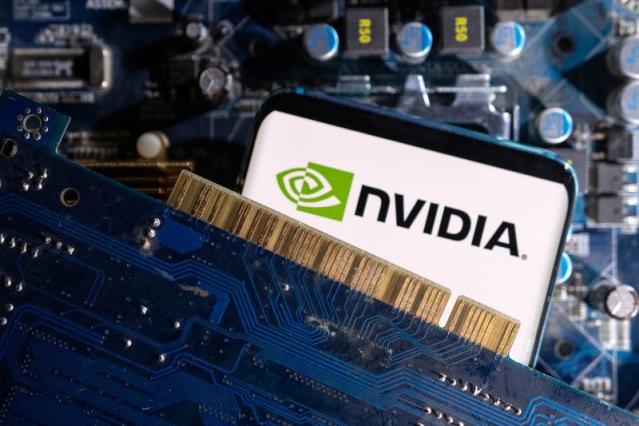On August 23, Nvidia (NVDA.O) delivered exceptional results, surpassing all forecasts for its quarterly revenue projection. The surge in demand for its chips, driven by the ongoing artificial intelligence (AI) boom, prompted the company to announce a substantial $25 billion stock buyback program. This news led to a significant after-hours spike in the company’s shares.
Nvidia’s revenue forecast outperformed expectations by a considerable margin, showcasing the enduring strength of the generative AI sector. This sector, characterized by technologies capable of human-like reading and writing, and heavily reliant on Nvidia’s chips, continues to flourish without any indication of slowing down.
On Wednesday, Nvidia revealed its intention to allocate an extra $25 billion towards share repurchases, a decision coinciding with the company’s remarkable stock performance this year, having tripled in value. This surge has propelled Nvidia to become the inaugural trillion-dollar chip enterprise, with investors strongly believing that the company will stand as the primary beneficiary of the ongoing AI surge.
Market analysts have assessed that the demand for Nvidia’s highly sought-after AI chips is surpassing supply by a minimum of 50%. This imbalance is projected to persist for the forthcoming several quarters.
“We are witnessing a global shift from general-purpose to accelerated computing and generative AI across companies,” remarked Jensen Huang, Nvidia’s CEO, in an official statement.
Following this announcement, shares of Nvidia, headquartered in Santa Clara, California, surged by 9.6% in post-market trading, marking a new record high for the company’s stock.
Interestingly, the primary driving force behind the quarter’s growth was not solely Nvidia’s chips, but rather its comprehensive AI systems, as highlighted by its executives. Despite its renown for graphics processing units (GPUs), Nvidia is also responsible for producing complete AI systems that encompass memory chips from external suppliers along with tens of thousands of other components.





